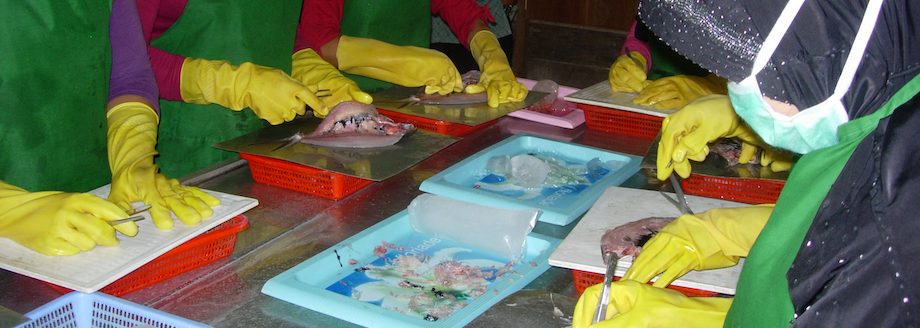COVID-19, Hygiene and Sanitation: What Does This Mean for Food Loss and Waste (FLW)
Ansen Ward, 30 April 2020
COVID-19 has ushered in a number of dramatic changes that will have implications for the future way in which fish and fish products are handled, and, in particular, more stringent hygiene and sanitation standards. This change will be seen not only at markets, but at all stages of the value chain, from capture, through processing and distribution to the final point of sale, and even in relation to the consumer.
Improved personal hygiene and sanitation of facilities and equipment will no doubt go hand-in-hand with improved handling, better storage and improved cold chain activities. With improved hygiene and sanitation, the likelihood of cross contamination with microorganisms, and hence accelerated spoilage, will be reduced. All of these are likely to have a positive impact on fish loss caused by spoilage.
As well as at wholesale and retail markets, there will likely be changes in upstream and downstream stages of the value chain. Fishers will have to play their part in improving on-board handling and hygiene and sanitation. Hygiene and sanitation will also have implications for the interaction between trader and buyer. There will be new ways to minimize contact during the handling of products, and therefore reducing the risk of cross contamination and damage to products. This may have implications on the way in which fish and fish products are made available to final consumers and the way in which transaction processes are conducted. Hygiene and sanitation may also be augmented with new, or more use of, packaging materials, which will prevent contamination and may prolong storage life.
Improving hygiene and sanitation however, will require investment. Some markets will require upgrading and consumers may be given more access to hand washing facilities. Workers will require training in improved hygiene and sanitation standards. And inspection authorities will need to invest more time and effort into monitoring new or existing standards and explore new ways of inspecting, embracing improved technology and equipment.
So, one silver lining to the COVID-19 pandemic, is that it may result in ensuring that hygiene and sanitation standards are not only implemented in the future, but also tightened. And investment in the associated changes needed to do this can only be positive in terms of food loss and waste (FLW) control, food safety and building back consumer confidence.
Find more information and resources on Food Loss and Waste in Fish Value Chains here.

